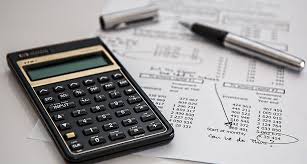
Table of Contents
Understanding and effectively managing your business number is critical. Whether you are a small startup, a well-established corporation, or a budding entrepreneur, your business number serves as a unique identifier that connects your organization to government services and facilitates a range of essential functions. Below, we delve into everything you need to know about your business number and why it is essential for your operations.
What Is a Business Number?
A business number (BN) is a unique, standardized identifier issued by a government authority to a registered business. It simplifies the interaction between businesses and government agencies by consolidating all your business accounts under one identifier. This number is commonly used for tax purposes, payroll accounts, and various other government-related activities.
For instance, in Canada, the BN is a 9-digit number issued by the Canada Revenue Agency (CRA). Similarly, other countries have equivalent systems, such as the Employer Identification Number (EIN) in the United States.
Why Is a Business Number Important?
A business number is critical for a range of administrative and legal purposes. Here are some of the key reasons why every business should have one:
Simplified Tax Filing
Your business number is primarily used for tax-related processes. It helps streamline communication with tax authorities, ensuring that all your tax accounts, such as Goods and Services Tax (GST), Harmonized Sales Tax (HST), and payroll deductions, are easily managed under one identifier.
Legal Compliance
In most jurisdictions, obtaining a business number is a legal requirement for operating a business. It ensures that your business complies with local regulations and maintains transparency with government authorities.
Access to Government Programs
A registered business with a valid business number can access various government programs, grants, and subsidies. These programs often require businesses to have a BN as proof of legitimate operation.
Building Trust with Stakeholders
Having a business number demonstrates professionalism and legitimacy. It reassures customers, investors, and partners that your business operates within the legal framework.
How to Obtain a Business Number
Acquiring a business number is a straightforward process, although the steps may vary depending on your country or region. Below, we outline the typical process:
Register Your Business
Before you can get a business number, you must first register your business with the relevant government authority. This involves choosing a business structure (e.g., sole proprietorship, partnership, corporation) and providing the necessary documentation.
Apply for a Business Number
Once your business is registered, you can apply for a BN. This can often be done online through government portals or by visiting a local office. In some cases, you may need to provide additional information about your business operations.
Link Your Accounts
After receiving your business number, link it to your tax, payroll, and other relevant accounts. This step ensures that all interactions with government agencies are streamlined under your unique BN.
Understanding the Components of a Business Number
A business number typically consists of multiple parts, each serving a specific purpose. For example:
- 9-digit Core Number: Identifies your business uniquely.
- 2-Letter Program Identifier: Indicates the type of account (e.g., RC for corporate income tax).
- 4-Digit Reference Number: Distinguishes multiple accounts under the same program.
For example, a Canadian business number might look like 123456789RC0001.
When Do You Need a Business Number?
You will need a business number if your business engages in the following activities:
- Collecting sales tax (e.g., GST/HST or VAT).
- Hiring employees and managing payroll deductions.
- Filing corporate income tax returns.
- Importing or exporting goods across borders.
- Accessing government grants or subsidies.
Maintaining and Updating Your Business Number
Once you have a business number, it’s important to keep it current. Here are some scenarios when you may need to update your BN:
- Change in Business Structure: Transitioning from a sole proprietorship to a corporation.
- Relocation: Moving your business to a new province or country.
- Expansion: Adding new divisions or services that require separate accounts.
Failing to update your business number details can lead to administrative complications and potential penalties.
Conclusion
Your business number is more than just a random sequence of digits—it is a vital tool that simplifies your operations, ensures legal compliance, and builds trust with stakeholders. Whether you are starting a new venture or expanding an existing one, obtaining and managing your business number is a crucial step in achieving long-term success.
